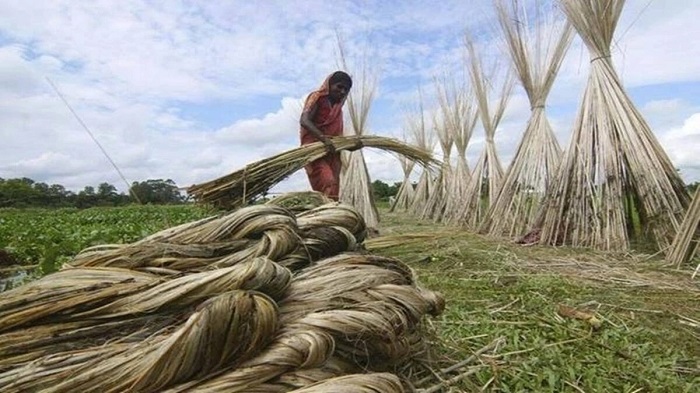
The Indian jute industry, perceived for long as a sunset industry surviving on expensive state patronage, is clearly on a revival path. Stricter domestic rules discouraging the use of plastic carry bags and a spurt in demand for jute bags from key export markets like the US, UK, the rest of Europe and the UAE are bringing cheer to the labour-intensive sector.
Exports of “jute and jute products” from India have risen at a fast pace in recent years. While the pandemic hasn’t disrupted the acceleration much, FY22 saw shipments surge 38% on year to Rs 3,786 crore (see chart). The export momentum has been maintained in the first half of the current fiscal year, according to industry sources. Major foreign retailers like Tesco, Lidl, Aldi, Muji, and Asda are aggressively opting for jute packaging, they added.
While the Plastic Waste Management Amendment Rules, 2021, prohibited manufacture, import, stocking distribution, sale and use of plastic carry bags with thickness less than 75 microns last year, the government has decided to extend the prohibition to bags up to 120 microns from December this year.
This will boost the demand for jute carry bags too, though cheaper options like cotton carry bags and paper and paper-board packaging are also available to the consumers.
Export oriented jute manufacturing units have been on a huge growth trajectory though they are facing tough competition from units in Bangladesh. Among the larger units, Birla Jute Mills and Golster are expanding their capacities. Birla Jute Mills is set to double exports to 5 million tonne in FY 23 from an average of 2.5 million tonne/annum in recent years.
Besides packaging, jute is used in construction, interior decoration, offices and it is also used for home appliances.
As far the domestic market is concerned, the industry continues to depend on government orders for food grain packaging. Despite 100% government subsidy, the mills involving thousands of people in the entire chain – from cultivation to distribution of the finished products – are hamstrung by the lack of raw material supplies, labour shortage, lack of working capital, labour unrest, price rigging in raw jute markets etc. Very often jute millers fail to supply the indented quantity to the government and hence the government has to reduce the targeted procurement of jute sacks, in favour of the plastic bag industry.
Despite all odds, the picture this year looks different. Deputy jute commissioner Koushik Chakraborty said the production in last jute year (July-June) was estimated at above 9.5 million bales against an average of 7.5-8 million bales in recent years.
Prices of raw jute have been subdued at Rs 5,500 per quintal, which last jute season crossed Rs 6,000 per quintal. Besides, there were problems of hoarding that created an artificial demand supply gap.
“Such problems are not seen this jute season and most of the 72 jute mills in West Bengal (out of the 90-odd across the country) are operational, save one or two”, Chakraborty said.
Raghavendra Gupta, president Indian Jute Mills Association (IJMA) said, with production and supplies easing the industry would expect the domestic market to be more responsive to jute products. But pricing is a factor which is pulling back jute packaging against paper and cotton cloth packaging.
Achyut Chanda of the Corrugated Box Manufacturers Association opined there should be R&D for cheaper plastic-free packaging and a new material or fabric can be developed blending jute and paper. But the Indian packaging industry, mostly under the MSME category, doesn’t have the strength to undertake R&D and so nothing much is happening in India.
IJMA’s Gupta said the association has proposed to the textile and consumer affairs ministries to run a pan India campaign – Bring Your Own Bag – which may boost sales of bio-degradable jute bags replacing plastics. “The jute industry is looking for a tripartite arrangement between the top retailers, jute bag manufacturers and the government to promote wider usage of jute bags in India ” Gupta said.
Jute products being exported include hessain, sacks, carpet backing fabrics, soil savers, and jute canvas. (Financial Express)

